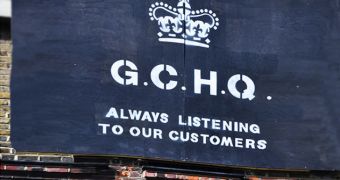The GCHQ, the British intelligence agency, has the ability to infiltrate the cables that are used to transfer information across the Internet and to monitor users in real time over several sites without the express agreement of the companies behind them.
According to a new set of documents published by NBC News, the British were the ones to teach the NSA how to spy on Facebook, Twitter and YouTube in real time, as well as how to collect the IP addresses of billions of sites’ uploaders.
When it comes to Twitter, it looks like the GCHQ has exploited unencrypted data with the purpose of identifying specific users around the world only to target them with propaganda. Regarding the YouTube surveillance, this was done without the knowledge of the public or the company behind the site, namely Google, the files reveal.
“We have long been concerned about the possibility of this kind of snooping, which is why we have continued to extend encryption across more and more Google services and links,” said a Google spokesperson.
The files also detail a new program that is called “Squeaky Dolphin,” which allows analysts to monitor online activity in real time.
Tech companies have denied on several occasions that they willingly gave intelligence agencies access to their data. The new documents from the Snowden stash prove once more that agencies such as the NSA and the GCHQ will not be stopped by refusals coming from companies, no matter how big they are.
By tapping into the cables directly, they don’t even have to bother with getting companies to agree to hand out data. Given the fact that about 11 percent of global Internet bandwidth travels through Internet exchanges in the United Kingdom, this means that it has access to a huge amount of data.
“Governments have no business knowing which YouTube videos everyone in the world is watching. It’s one thing to spy on a particular person who has done something to warrant a government investigation but governments have no business monitoring the Facebook likes or YouTube views of hundreds of millions of people,” reacted Chris Soghoian, chief technologist for the ACLU.

 14 DAY TRIAL //
14 DAY TRIAL //